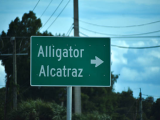Jan 2, 2013
Flu spikes make holiday headlines
Flu is surging in several parts of the world, with pandemic 2009 H1N1 (pH1N1) outbreaks making headlines in Palestine, Norway, and Yemen, and rising numbers of illnesses, primarily from the H3N2 strain, reported in US states such as Minnesota and South Carolina, according to media reports. A Palestinian health official said a pH1N1 outbreak has killed 9 people and infected 225 more, according to a Dec 31 Associated Press (AP) report. Meanwhile, Norwegian officials said more patients are testing positive for the virus in the country's major cities, including 84 at a hospital west of Oslo, a city that has activated personnel to respond to a possible major outbreak, said Xinhua, China's state news agency. In Yemen, five recent flu deaths prompted health officials to set up an operations center to address a potential outbreak, according to a report today from The Gulf Today, based in the United Arab Emirates. In the United States, where the H3N2 virus has been dominating, surging numbers of flu cases in South Carolina have led some clinics to call in more staff to handle the load, The Greenville News reported today. Jim Ellis, MD, medical director for MD 360 Convenient Care practices, said clinics in Greenville and Simpsonville are seeing about 90 flu patients a day. In Minnesota, a holiday spike in flu cases has led to concern that this season could be the worst in several years, the Star Tribune reported today. State health officials said 120 people were hospitalized for flu during the week ending Dec 22, nearly double the previous week, a pace that could rival the 2009 H1N1 pandemic months, according to the report.
Jan 1 Xinhua report
Jan 2 Gulf Today story
Jan 2 Greenville News article
Jan 2 Star Tribune story
Researchers to ask ACIP to recommend Fluzone High-Dose for HIV patients
Pennsylvania researchers will ask the US Advisory Committee on Immunization Practices (ACIP) to recommend high-dose influenza vaccine for HIV-positive people after their study this week showed a stronger immune response against two flu strains compared with standard vaccine, the Philadelphia Inquirer reported today. The ACIP advises the Centers for Disease Control and Prevention (CDC), and its recommendations usually become CDC policy. Tebas said the team is acting independent of Sanofi Pasteur, which makes Fluzone High-Dose, a vaccine approved for only those 65 and older. Their Annals of Internal Medicine study, which was not funded by Sanofi, found that Fluzone High-Dose produced a significantly stronger immune response in 97 HIV patients against pH1N1 and influenza B compared with standard-dose Fluzone in 93 HIV patients. Seroprotection rates for high-dose versus regular flu vaccine for the three strains were 96% vs 87% for pH1N1, 91% vs 80% for flu B, and 96% vs 92% for H3N2 (the predominant strain in the US this year). Seroprotection was defined as antibody titers of 1:40 or greater on hemagglutination inhibition assay 21 to 28 days after vaccination. The authors point out that their study did not assess vaccine effectiveness (whether the vaccines prevented flu), which is typically lower than seroprotection. Also, immune response in sicker patients (with low CD4 counts) did not reach statistical significance for any of the strains.
Jan 2 Philadelphia Inquirer story
Jan 1 Ann Intern Med abstract

















